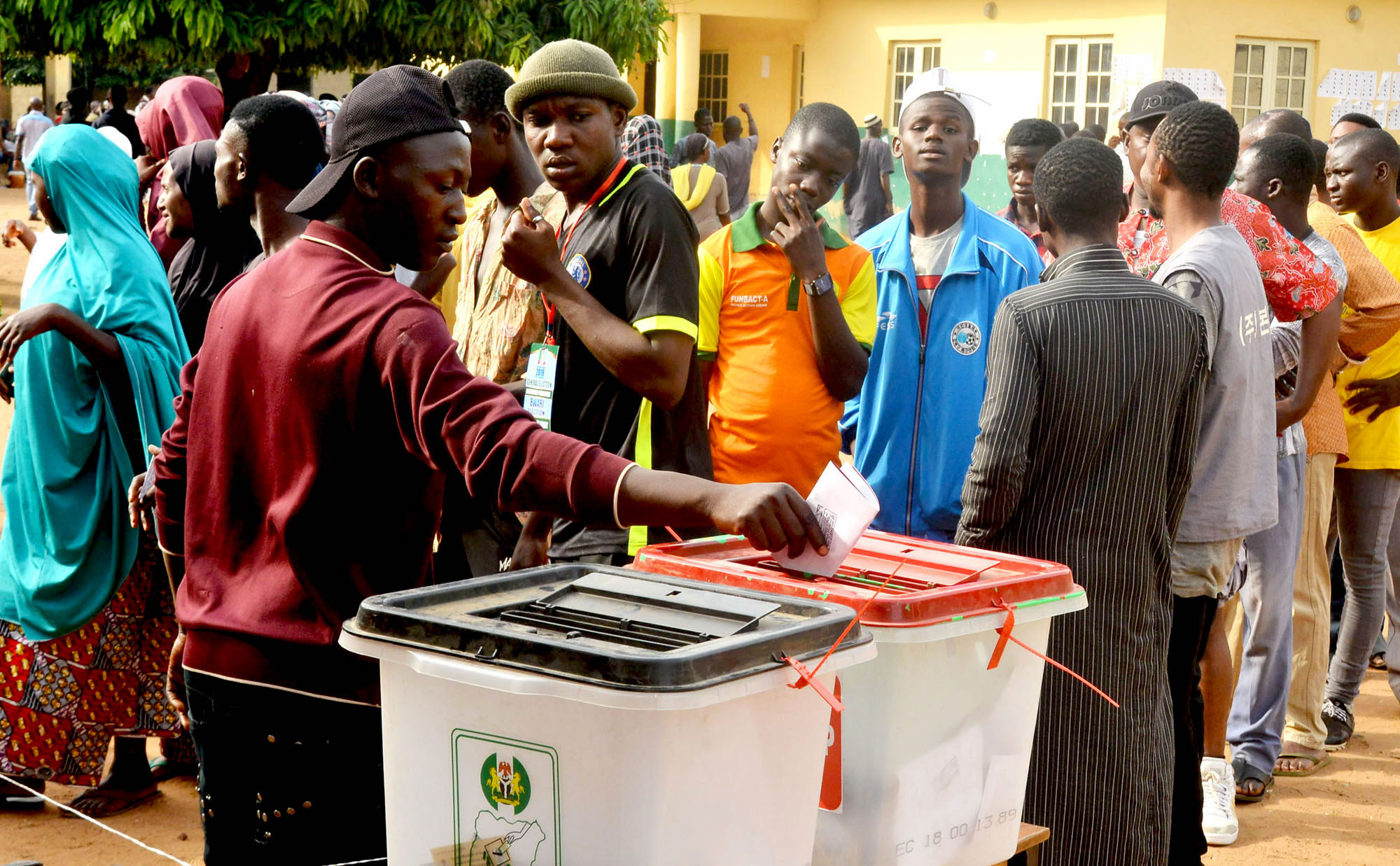Abuja court gives INEC new orders on the use of temporary voter’s card for March election
The petition was filed by two disgruntled Nigerians seeking the use of TVCs in general elections

On Thursday, Judge Obiora Egwuatu of a Federal High Court in Abuja ordered the Independent National Electoral Commission (INEC) to permit eligible voters to participate in the March 18 governorship and state houses of assembly elections with Temporary Voter Cards (TVC).
The order was issued by Judge Egwuatu while delivering judgment in a petition filed by two disgruntled Nigerians seeking the use of TVCs in general elections in the absence of Permanent Voter Cards (PVCs).
The judge predicated the order on the grounds that the plaintiffs were duly registered and captured in INEC’s database.
“An order is made compelling the defendant (INEC) to allow the plaintiffs to vote using their Temporary Voter Cards issued by the defendant, the plaintiffs having been duly captured in the National Register of Voter’s database.
”A declaration is made by this court that the plaintiffs, having fulfilled all necessary legal requirements to register and having consequently been captured in the defendant’s (INEC’s) central database and manual, printed paper based record or hard copy format of the defendant’s maintained Register of Voters, the plaintiffs are entitled to vote using their Temporary Voter Cards in the forthcoming 2023 General Election,” the judge said.


Justice Egwuatu however, stated that he was unable to grant the third prayer of the plaintiffs which was seeking to allow every eligible voter with a TVC to vote because the suit was not filed in a representative capacity.
“This suit having not been brought in a representative capacity, I find myself unable to grant any relief pursuant to prayer three of the plaintiffs application.”
The court held that there was no portion of the law, both the 1999 Constitution and the Electoral Act that states that it is only PVCs that could be used, but that the law under Section 47 provided for a voter’s card.
Speaking to newsmen, counsel to the plaintiffs, Mr Victor Opatola said that the judgment was a win for all Nigerians who suffered to get registered to vote, were duly registered but due to no fault of theirs could not get their PVCs before the election.


According to Opatola, since my clients had fulfilled all necessary requirements by law but were not issued their PVCs until the time for collection of PVCs was over, they should not be allowed to suffer.
The lawyer also said that it was the law of equity that what applied to the goose should also apply to the gander.
“So what the court is saying is that these two people who have fulfilled all necessary requirements can vote with their TVCs, then by law of equity, it should also apply to all Nigerians who have fulfilled all necessary requirements and were issued TVCs by INEC.”
He maintained that this should be so because the content of the TVC was the same as the content of the PVC and the only difference was the plastic used for the PVC.
Recall that INEC had repeatedly held that only eligible voters with the PVCs would be allowed to vote in the 2023 presidential, governorship and parliamentary elections.
However, the plaintiffs, Kofoworola Olusegun and Wilson Allwell in the suit filed on Feb. 8 and marked FHC/ABJ/CS/180/2023, challenged the position of INEC and asked the court to determine “Whether by the true construction and interpretation of section 10(2), 12(1) and 47 of the Electoral Act 2022; Section 77(2) and 132(5) of the 1999 constitution (as amended), and bearing in mind that the Bimodal Voters Accreditation System (BVAS) machine introduced by INEC only needs the thumbprint and/or facial recognition to accredit a voter.
Besides they prayed for, “An order compelling INEC to allow the plaintiff to vote using the TVC issued by INEC, the plaintiff having been duly captured in the national register of voter’s database.




